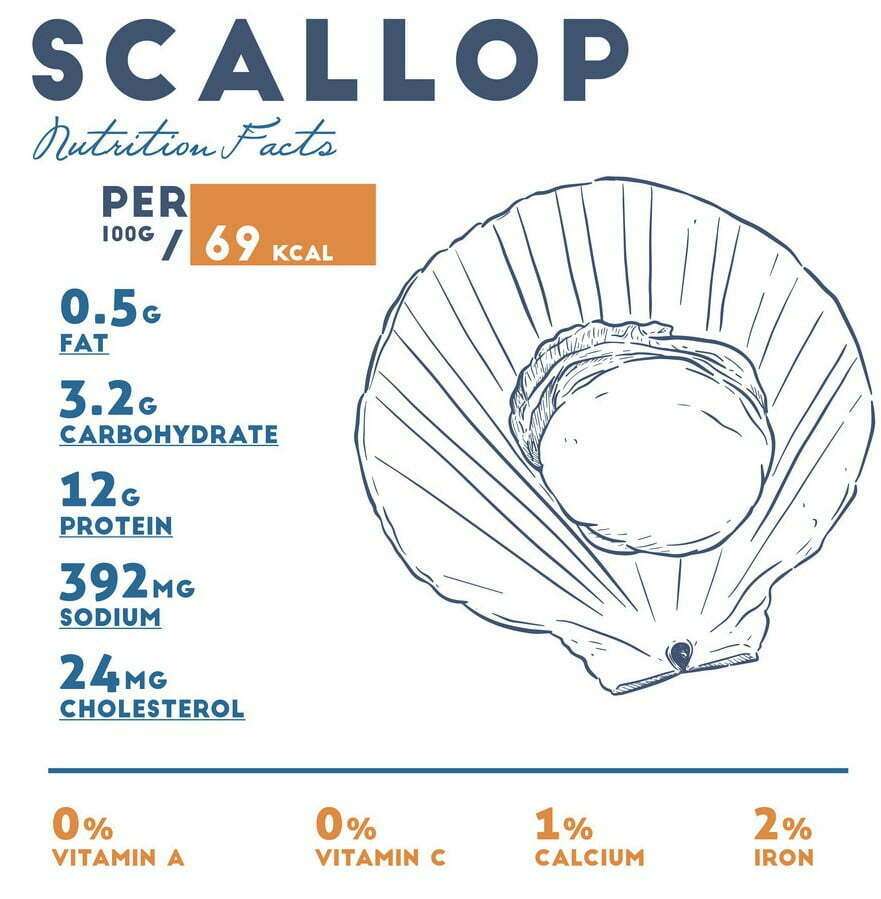Shellfish.
Shellfish..
The king scallop’s muscle underneath its shell is firmer and meatier than that of oysters and clams, and is often described as tender and buttery. Although firm in texture, a well-prepared and seasoned scallop will melt on your tongue in a cascade of flavors. It handles flavorful herbs and spices with great success – you can also afford to be generous with garlic, chili and ginger. Steaming and frying are the most common methods of preparation, but seasoned seafood-lovers will also advocate that you try it raw.
Given that the scallop is a self-fertilizing hermaphrodite, which means that it can reproduce by itself, it seems sense that it has long been a symbol of fertility in Continental Europe. As opposed to other saltwater mollusc species, the scallop can engage in "perpetual gender stereo," which is extremely uncommon. Another amazing characteristic of the scallop is that it is an excellent swimmer. It might not be up to par by our standards, but when compared to oysters and clams, it is almost Michael Phelps-like.
The scallop doesn't appear to be designed to move on its own at first glance. Oysters and clams, which are related to it, are actually entirely sedentary. There aren't many ways to move when your "skin" is a hard, inflexible shell and you have no limbs, but the king scallop has discovered one.
King Scallops are not only packed with proteins, vitamins and minerals but also contain several substances that will benefit your overall health!
Eating
King Scallop comes with huge health benefits. It consists mainly of protein and healthy omega-3 fat, sodium and is rich in vitamin B12 and zinc – all of which are essential for a healthy brain.
Shellfish, your next super-food!

